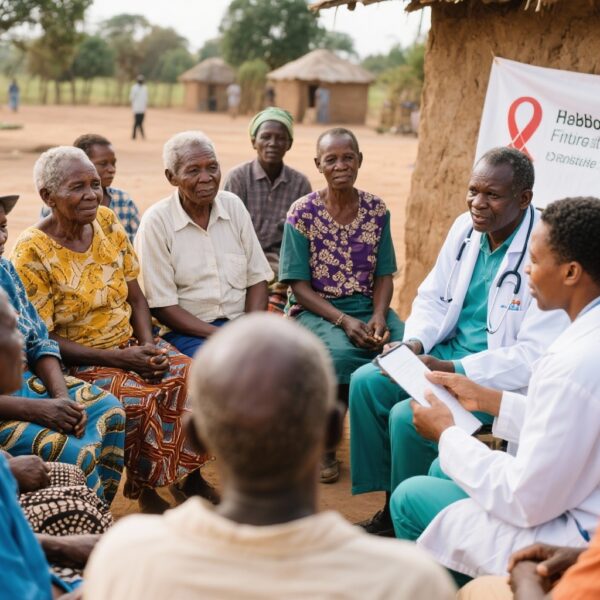Highlight
This large territory-wide cohort study using target trial emulation provides strong evidence that statin therapy in hypercholesterolemic older adults with chronic kidney disease (CKD) aged 75 and above is associated with significant reduction in overall cardiovascular disease incidence and all-cause mortality. The study also confirms the safety of statin use in this population, showing no significant increase in myopathies or liver dysfunction. These benefits persist even in very old adults aged 85 years and older.
Study Background
Cardiovascular disease (CVD) remains the leading cause of morbidity and mortality globally, disproportionately impacting patients with chronic kidney disease (CKD). Dyslipidemia, particularly elevated low-density lipoprotein cholesterol (LDL-C), is a modifiable risk factor commonly observed in CKD, contributing to accelerated atherosclerosis. Statin therapy is established for primary and secondary prevention of cardiovascular events in the general population, including adults with CKD. However, older adults, particularly those aged 75 years and above and with CKD, have been under-represented in randomized controlled trials (RCTs), limiting direct evidence to guide clinical decision-making in this group. This knowledge gap has resulted in ongoing clinical uncertainty regarding the effectiveness and safety of initiating statins for primary prevention in hypercholesterolemic older CKD patients, especially the very elderly ≥85 years.
Study Design
The study leverages a territory-wide public electronic health record database from Hong Kong, encompassing patients aged over 60 years with diagnosed CKD and hyperlipidemia (LDL cholesterol ≥2.6 mmol/L). Enrollment was incremental, including patients on a rolling monthly basis from January 2008 through December 2015, creating a comprehensive observational dataset conducive to target trial emulation. Patients were categorized into three age groups for analysis: 60-74 years (benchmark group with established statin benefit), 75-84 years (older adults), and ≥85 years (very old adults). Statin initiators and non-initiators were compared using pooled logistic regression models to estimate hazard ratios (HRs) for primary outcomes, including overall incidence of cardiovascular diseases, specific CVD subtypes (myocardial infarction, heart failure, stroke), all-cause mortality, and safety endpoints (myopathies and liver dysfunction). Both intention-to-treat and per-protocol analyses were conducted, enhancing robustness of findings.
Key Findings
The study cohort comprised 711,966 person-trials representing 96 emulated trials and included 19,423 unique individuals aged 60-74, 22,565 aged 75-84, and 8,811 aged 85 years or older with CKD and hypercholesterolemia.
For the 75-84 years group, statin therapy was associated with a statistically significant reduction in risk of overall cardiovascular disease incidence: hazard ratio (HR) 0.94 (95% confidence interval [CI] 0.89-0.99) in the intention-to-treat analysis, and a stronger effect HR 0.86 (95% CI 0.80-0.92) in the per-protocol analysis. Similar risk reductions were observed for all-cause mortality—HR 0.87 (95% CI 0.82-0.91) intention-to-treat, and 0.78 (95% CI 0.72-0.84) per-protocol. These results indicate consistent and clinically meaningful cardiovascular risk reduction and survival benefit associated with statin initiation in this older CKD population.
In the very old adults cohort (≥85 years), statins also demonstrated significant benefit, with HR for overall cardiovascular disease incidence of 0.88 (95% CI 0.79-0.99) intention-to-treat and 0.81 (95% CI 0.71-0.92) per-protocol. All-cause mortality similarly reduced—HR 0.89 (95% CI 0.81-0.98) and 0.80 (95% CI 0.71-0.91) in intention-to-treat and per-protocol analyses, respectively.
Subgroup analyses across all age groups consistently showed substantial risk reduction for major cardiovascular disease subtypes, including myocardial infarction, heart failure, and stroke, reinforcing the broad cardioprotective efficacy of statins.
Regarding safety, statin use did not significantly increase the risk of myopathies or liver dysfunction in any age category. This finding provides reassuring data supporting the tolerability of statins in older CKD patients, including those of very advanced age.
Expert Commentary
The study addresses a critical gap in evidence by applying a rigorous target trial emulation approach to a large real-world dataset, overcoming ethical and practical barriers to conducting large RCTs in elderly patients with CKD. The consistency of findings with previously established benefits in younger cohorts validates the methodology and underscores the clinical value of statins beyond 75 years of age.
Clinicians often face challenges balancing cardiovascular benefits against potential adverse events in very elderly patients with multimorbidity. This study’s data support that statin therapy should be considered for primary prevention in older hypercholesterolemic CKD patients, including those aged ≥85 years, while monitoring for adverse effects. The lack of increased myopathy or liver toxicity is particularly relevant, given concerns that polypharmacy and altered drug metabolism in CKD and aging might predispose to such events.
Limitations to consider include the observational nature despite target trial emulation, residual confounding, and the restriction of data to one region (Hong Kong), which may impact generalizability. However, the large sample size and robust statistical analyses strengthen the inference.
Conclusion
This comprehensive cohort study using target trial emulation strongly supports that initiating statin therapy for primary prevention in hypercholesterolemic older adults with chronic kidney disease aged 75 years and above confers significant reductions in cardiovascular disease incidence and all-cause mortality without added risk of major adverse effects. The benefits extend to very old adults aged ≥85 years. These findings advocate for revisiting current clinical guidelines and encourage more proactive lipid management in this high-risk, historically understudied population. Future randomized trials or pragmatic studies should further explore individualized statin use considering frailty and competing risks in the oldest old.
Funding
This work was supported by the National Natural Science Foundation of China Excellent Young Scientists Fund (Hong Kong and Macau).
References
Xu W, Yau YK, Pan Y, Tse ETY, Lam CLK, Wan EYF. Effectiveness and safety of using statin therapy for the primary prevention of cardiovascular diseases in older patients with chronic kidney disease who are hypercholesterolemic: a target trial emulation study. Lancet Healthy Longev. 2025 Mar;6(3):100683. doi: 10.1016/j.lanhl.2025.100683. Epub 2025 Mar 6. PMID: 40058388.



